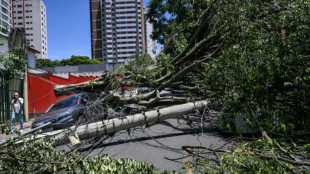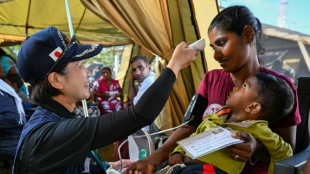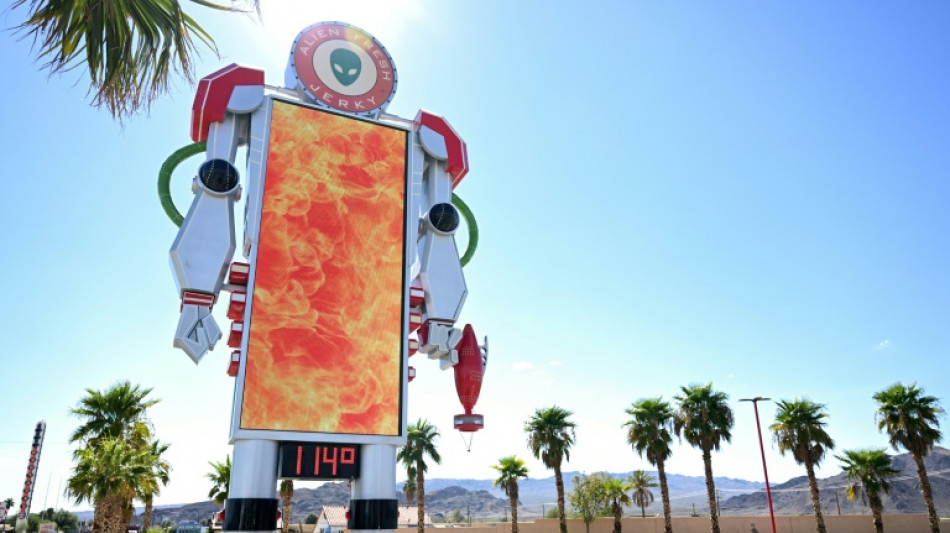
-
 Higa becomes first Japanese golfer to win Asian Tour order of merit
Higa becomes first Japanese golfer to win Asian Tour order of merit
-
Deja vu? Trump accused of economic denial and physical decline

-
 Vietnam's 'Sorrow of War' sells out after viral controversy
Vietnam's 'Sorrow of War' sells out after viral controversy
-
China's smaller manufacturers look to catch the automation wave

-
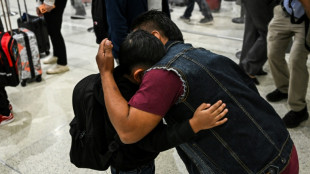 For children of deported parents, lonely journeys to a new home
For children of deported parents, lonely journeys to a new home
-
Hungary winemakers fear disease may 'wipe out' industry

-
 Chile picks new president with far right candidate the front-runner
Chile picks new president with far right candidate the front-runner
-
German defence giants battle over military spending ramp-up

-
 Quarterback Mendoza wins Heisman as US top college football player
Quarterback Mendoza wins Heisman as US top college football player
-
Knicks reach NBA Cup final with 132-120 win over Magic

-
 Campaigning starts in Central African Republic quadruple election
Campaigning starts in Central African Republic quadruple election
-
NBA Cavs center Mobley out 2-4 weeks with left calf strain

-
 Tokyo-bound United flight returns to Dulles airport after engine fails
Tokyo-bound United flight returns to Dulles airport after engine fails
-
Hawks guard Young poised to resume practice after knee sprain

-
 Salah back in Liverpool fold as Arsenal grab last-gasp win
Salah back in Liverpool fold as Arsenal grab last-gasp win
-
Raphinha extends Barca's Liga lead, Atletico bounce back

-
 Glasgow comeback upends Toulouse on Dupont's first start since injury
Glasgow comeback upends Toulouse on Dupont's first start since injury
-
Two own goals save Arsenal blushes against Wolves

-
 Trump vows revenge after troops in Syria killed in alleged IS ambush
Trump vows revenge after troops in Syria killed in alleged IS ambush
-
Maresca bemoans 'worst 48 hours at Chelsea' after lack of support

-
 Teenage pair Ndjantou, Mbaye star as PSG beat Metz to go top
Teenage pair Ndjantou, Mbaye star as PSG beat Metz to go top
-
Drone strike in southern Sudan kills 6 UN peacekeepers

-
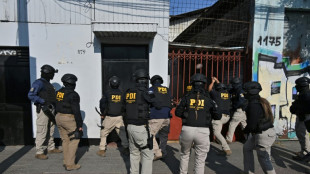 Crime wave propels hard-right candidate toward Chilean presidency
Crime wave propels hard-right candidate toward Chilean presidency
-
'Magic' Jalibert guides Bordeaux-Begles past Scarlets

-
 Teenage pair Ndjantou and Mbaye star as PSG beat Metz to go top
Teenage pair Ndjantou and Mbaye star as PSG beat Metz to go top
-
Anglo-French star Jane Birkin gets name on bridge over Paris canal

-
 Jalibert masterclass guides Bordeaux-Begles past Scarlets
Jalibert masterclass guides Bordeaux-Begles past Scarlets
-
M23 marches on in east DR Congo as US vows action against Rwanda
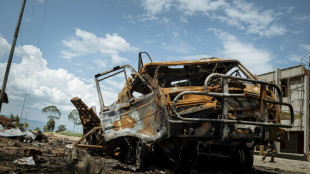
-
 Raphinha double stretches Barca's Liga lead in Osasuna win
Raphinha double stretches Barca's Liga lead in Osasuna win
-
Terrific Terrier returns Leverkusen to fourth

-
 Colts activate 44-year-old Rivers for NFL game at Seattle
Colts activate 44-year-old Rivers for NFL game at Seattle
-
US troops in Syria killed in IS ambush attack
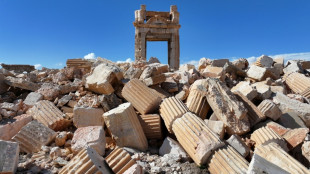
-
 Liverpool's Slot says 'no issue to resolve' with Salah after outburst
Liverpool's Slot says 'no issue to resolve' with Salah after outburst
-
'Stop the slaughter': French farmers block roads over cow disease cull
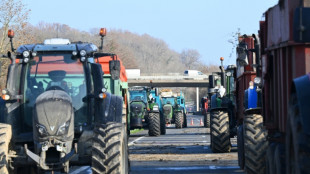
-
 Stormers see off La Rochelle, Sale stun Clermont in Champions Cup
Stormers see off La Rochelle, Sale stun Clermont in Champions Cup
-
Maresca hails Palmer as Chelsea return to winning ways against Everton

-
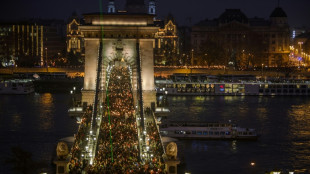 Hungarian protesters demand Orban quits over abuse cases
Hungarian protesters demand Orban quits over abuse cases
-
Belarus frees protest leader Kolesnikova, Nobel winner Bialiatski

-
 Salah sets up goal on return to Liverpool action
Salah sets up goal on return to Liverpool action
-
Palmer strikes as Chelsea return to winning ways against Everton

-
 Pogacar targets Tour de France Paris-Roubaix and Milan-San Remo in 2026
Pogacar targets Tour de France Paris-Roubaix and Milan-San Remo in 2026
-
Salah back in action for Liverpool after outburst

-
 Atletico recover Liga momentum with battling win over Valencia
Atletico recover Liga momentum with battling win over Valencia
-
Meillard leads 'perfect' Swiss sweep in Val d'Isere giant slalom

-
 Salah on Liverpool bench for Brighton match
Salah on Liverpool bench for Brighton match
-
Meillard leads Swiss sweep in Val d'Isere giant slalom

-
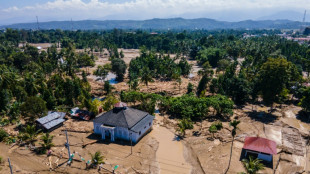 Indonesia flood death toll passes 1,000 as authorities ramp up aid
Indonesia flood death toll passes 1,000 as authorities ramp up aid
-
First urban cable car unveiled outside Paris

-
 Vonn second behind Aicher in World Cup downhill at St Moritz
Vonn second behind Aicher in World Cup downhill at St Moritz
-
Aicher pips Vonn to downhill win at St Moritz


Heat waves: what you need to know
A blistering heat wave is baking the western United States, the latest to blast the northern hemisphere in a summer that has brought extreme temperatures across Europe, Asia and North America.
Climatologists say the kiln-like conditions in California, Nevada and Arizona are caused by a heat dome -- a huge bubble of stationary high pressure that is trapping ever-hotter air.
And, they say, human-caused climate change is making these oppressive heat waves worse -- hotter, longer and more frequent.
Here's what you need to know about heat waves.
- What is a heat wave? -
Anyone suffering through sultry nights and sweltering days knows they're in a heat wave, but there are a few technical definitions.
The one the US government chooses is: at least two consecutive days when the minimum temperature for the area is hotter than 85 percent of July and August days in the same area, based on historical averages.
That minimum usually comes at night, which is important -- after a very hot day, our bodies tend to cool off at night. But if the temperature remains elevated, that's much harder. This is when people get ill.
It's also important to localize the definition. People accustomed to 85 Fahrenheit (29 Celsius) days are likely not fazed by 90 degrees. But if you live in a chilly, damp spot and the mercury hits 90, you'll find it much harder to cope.
- What causes heat waves? -
Generally it's an area of high pressure that parks itself in one spot, forming a heat dome -- imagine a huge greenhouse that lets in the sun's heat, but won't let any air flow through.
The high pressure prevents clouds from forming as it pushes air downwards, compressing and heating the air -- think of how a tire gets hot as you pump more air in.
Jet streams -- air that flows high in the Earth's atmosphere -- usually move pressure systems around the planet.
But they can meander. As the waves of a jet stream widen, they slow and can even stop. This is what leaves a ridge of high pressure in one place.
- Are heat waves dangerous? -
Yes, very. More people die from the heat every year in the United States than from any other extreme weather, including floods, tornadoes, and cold snaps, according to government figures.
A ferocious heat wave in Spain and Portugal in July left more than 1,700 people dead.
And hundreds died last year when a heat wave frazzled Canada and the western US, with temperatures of up to 121F (49C).
When it's very hot, our bodies find it more difficult to keep cool, which can result in a "cascade of illnesses," according to the World Health Organization.
These include heat cramps, heat exhaustion, heatstroke, and hyperthermia.
"Deaths and hospitalizations from heat can occur extremely rapidly (same day), or have a lagged effect (several days later) and result in accelerating death or illness in the already frail," the WHO says.
That means anyone who already suffers from problems with their heart or respiratory system is particularly at risk.
The effects of intense heat are not evenly felt across societies, and tend to be more acute in poorer, and more marginalized communities.
Homeless people or those who work outside during the heat of the day are obviously at risk, but so are people living in neighborhoods without tree cover, or near to sources of pollution like roads.
- What is climate change doing? -
Like all weather phenomena, climate change is super-charging heat waves.
Human activity, specifically the burning of fossil fuels, has warmed the Earth by an average of around 1.9F (1.2C) since pre-industrial times. Much of this warming has happened in the last 50 years.
US government data shows heat waves worsening in concert with a warming planet: Every decade since the 1960s they have got longer, hotter and more frequent.
"Their frequency has increased steadily, from an average of two heat waves per year during the 1960s to six per year during the 2010s and 2020s," the Environmental Protection Agency says.
"In recent years, the average heat wave in major US urban areas has been about four days long. This is about a day longer than the average heat wave in the 1960s."
A study after last year's record-breaking heat wave in Canada found it would have been "virtually impossible" without human-caused climate change.
The World Weather Attribution group said that global warming, caused by greenhouse gas emissions, made the heat wave at least 150 times more likely to happen.
A.Gasser--BTB

